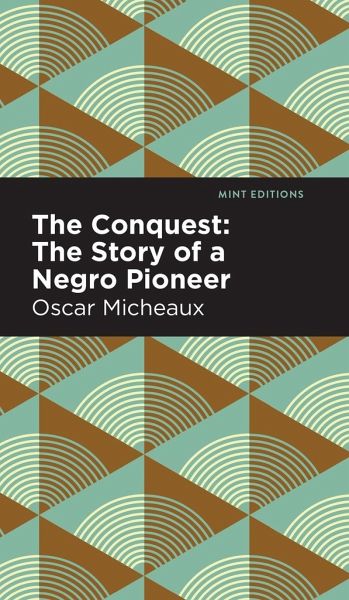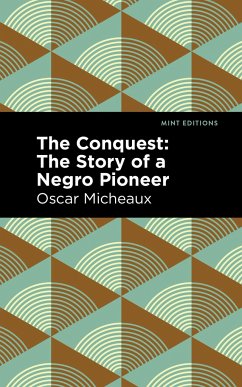
The Conquest
Versandkostenfrei!
Versandfertig in 1-2 Wochen
17,99 €
inkl. MwSt.

PAYBACK Punkte
9 °P sammeln!
The Conquest: The Story of a Negro Pioneer (1913) is a novel by Oscar Micheaux. Before he became the first Black movie mogul in American history, Micheaux was a homesteader-turned novelist whose passion for storytelling and business acumen were born from a youth of hard work and struggle. The son of a former slave, Micheaux dedicated his life to countering the dominant narratives of American history while inspiring and empowering Black people around the world. "The heavy rains washed the loam from the hills and deposited it on these bottoms. Years ago, when the rolling lands were cleared, and ...
The Conquest: The Story of a Negro Pioneer (1913) is a novel by Oscar Micheaux. Before he became the first Black movie mogul in American history, Micheaux was a homesteader-turned novelist whose passion for storytelling and business acumen were born from a youth of hard work and struggle. The son of a former slave, Micheaux dedicated his life to countering the dominant narratives of American history while inspiring and empowering Black people around the world. "The heavy rains washed the loam from the hills and deposited it on these bottoms. Years ago, when the rolling lands were cleared, and before the excessive rainfall had washed away the loose surface, the highlands were considered most valuable for agricultural purposes, equally as valuable as the bottoms now are." A Black homesteader named Oscar Devereaux reflects on a life of perseverance. Raised alongside twelve siblings in rural Illinois, he leaves home and family behind to seek a life of fortune and independence. Never one to set limits, Devereaux discovers that no dream is beyond his reach. Dedicated to educator and orator Booker T. Washington, The Conquest was described by its author as the "true story of a negro who was discontented and [of] the circumstances that were the outcome of that discontent." This edition of Oscar Micheaux's The Conquest: The Story of a Negro Pioneer is a classic of African American literature reimagined for modern readers. Since our inception in 2020, Mint Editions has kept sustainability and innovation at the forefront of our mission. Each and every Mint Edition title gets a fresh, professionally typeset manuscript and a dazzling new cover, all while maintaining the integrity of the original book. With thousands of titles in our collection, we aim to spotlight diverse public domain works to help them find modern audiences. Mint Editions celebrates a breadth of literary works, curated from both canonical and overlooked classics from writers around the globe.














